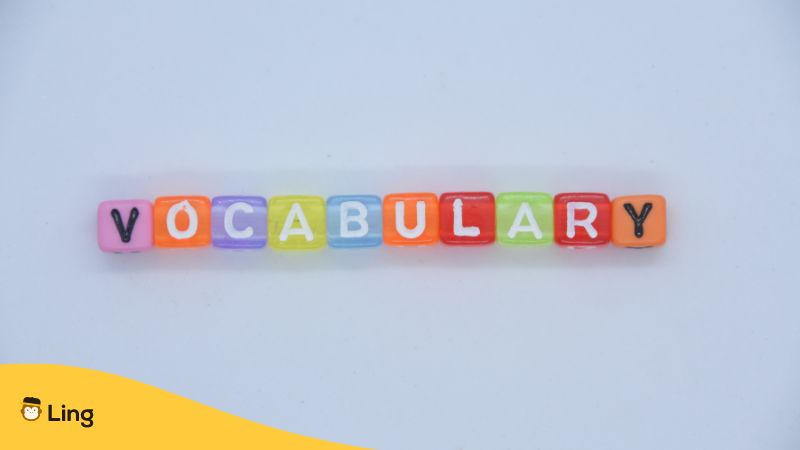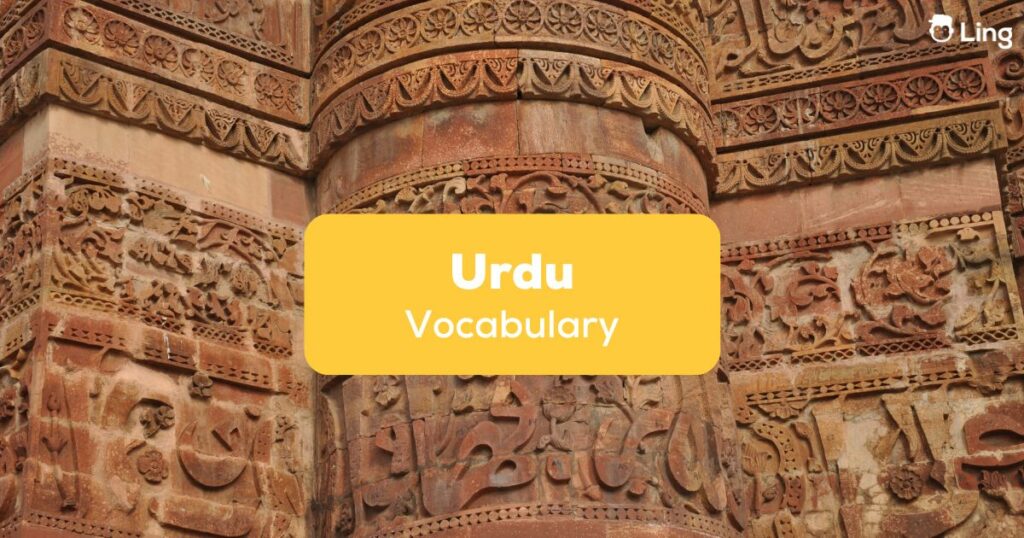You know how they say French is the ultimate romance language? Or Latin being the mother of all the global Western languages? In my mind, each language has a defining feature. So, the Urdu language, for me, is the language of tahazeeb (culture and refinery). That’s because it has such beautiful sounding Urdu vocabulary – sweet music to one’s ears.
In this blog post, we’re going to learn different Urdu words based on the situations you would need them. Whether navigating daily conversations, building rapport with locals, or immersing yourself in vibrant traditions – these beautiful Urdu words are going to be your dareecha (window) to the fascinating Urdu culture.
Table of Contents
Urdu Vocabulary For Different Occasions
So, without further ado, let us look at Urdu words and phrases that can be used on various occasions.
What Are The Most Common Everyday Urdu Words?
Getting started with the most common words used in day-to-day conversations is the best way to begin your language-learning journey. Here’s a list that’s going to be handy for sure!
| English | Urdu | Romanized Urdu |
|---|---|---|
| I | میں | Main |
| My | میرا | Mera |
| You (formal/respect) | آپ | Aap |
| You (informal) | تم | Tum |
| Your (formal) | آپ کا | Aapka |
| Your (informal) | تمہارا | Tumhara |
| What | کیا | Kya |
| Yes | ہاں | Haan |
| No | نہیں | Na |
| Today | آج | Aaj |
| Tomorrow/ Yesterday | کل | Kal |

Essential Urdu Vocabulary For Daily Conversations
Now that you’ve learned some daily used words, it’s time to weave them together to form sentences for a conversation.
Basic greetings like Assalamu Alaikum (Peace be upon you) and Salam (Hello) to common courtesies like Shukriya (Thank you) and Kya haal hai? (What’s up?) will help you strike up a basic conversation with native-Urdu speakers or get by in Urdu-speaking regions of the Indian subcontinent.
Basic introductions, such as Aapka naam kya hai? (What is your name?), and personal information exchanges like Mera naam _____ hai (My name is _____) will help you establish connections effortlessly.
Let us look at some basic Urdu phrases for such occasions.
| English | Urdu | Romanized Urdu |
|---|---|---|
| How are you? | آپ کیسے ہو؟ | Aap kaise ho? |
| What’s up? | کیا حال ہے؟ | Kya haal hai? |
| Thank you | شکریہ۔ | Shukriya |
| Welcome | خوش آمدید۔ | Khush aamadeed |
| Goodbye | الوداع۔ | Alvida |
| Can you help me? | کیا آپ میری مدد کر سکتے ہیں؟ | Kya aap meri madad kar sakte hain? |
| Please forgive me | مجھے معاف کر دیجیۓ۔ | Mujhe maaf kar dijiye |
| Very beautiful | بہت خوبصورت۔ | Bohat khoobsurat |
| I don’t know | مجھ نہیں پتہ | Mujhe nahi pata |
| Congratulations | مبارک ہو۔ | Mubaarak ho |
Basic Urdu Vocabulary For Social Situations
Learning basic Urdu vocabulary gives you a confidence booster shot. Try ordering food at a local restaurant or bargaining at a bustling market with phrases like Yeh kitne ka hai? (How much is this for?) and Thora sasta kar do (Please reduce the price a little) and you’ll be greeted with awestruck faces and amazed locals.
| English | Urdu | Romanized Urdu |
|---|---|---|
| I would like a cup of coffee | مجھے ایک کپ کوففے چاہیے | Mujhe ek cup coffee chaahiye |
| How much does a plate of Biryani cost? | بریانی کی ایک پلیٹ کی قیمت کتنی ہے؟ | Biryani ki ek plate ki keemat kitni hai? |
| I want a tea without milk | مجھے دودھ کے بغیر چائے چاہیے۔ | Mujhe doodh ke bagair chay chaahiye |
| I want less spicy food | مجھے کم مسالیدار کھانا چاہئے | Mujhe kam masaaledaar khana chaahiye |
| Please give me the bill | براہ کرم مجھے بل دے دیں۔ | Barah karam mujhe bill de dein |
| This is very expensive | یہ بہت مہنگا ہے۔ | Yeh bohot mehnga hai |
| Can you lower its price? | کیا آپ اسکی قیمت کم کرسکتے ہیں؟ | Kya aap iski keemat kam kar sakte hain? |
| I like it | مجھے یہ پسند ہے | Mujhe yeh pasand hai |
| I don’t like it | مجھے یہ پسند نہیں | Mujhe yeh pasand nahi |
| Can you pack this for me? | کیا آپ یہ میرے لیے پیک کر سکتے ہیں؟ | Kya aap mere liye yeh pack kar sakte hain? |
Urdu Vocabulary To Communicate With Locals And Staff Members
If you’re an expat or diplomat, effective communication with locals and staff members is essential. Learn common workplace and office vocabulary, such as kaam (work), daftar (office), and meeting (meeting), to express your needs and give instructions clearly.
Understanding local customs and etiquette will not only ensure smoother interactions but also demonstrate your respect for the culture.
| English | Urdu | Romanized Urdu |
|---|---|---|
| Please, I need help | براہ کرم، مجھے مدد چاہیے۔ | Barah e karam, mujhe madad chahiye |
| Do you speak English? | کیا آپ انگریزی بولتے ہیں؟ | Kya aap angarezee bolte hain? |
| I want to go there | میں وہاں جانا چاہتا / چاہتی ہوں | Main wahan jaana chaahta/ chaahti hoon |
| How far is it from here? | یہ یہاں سے کتنی دور ہے؟ | Yeh yahan se kitni door hai? |
| Do you know of any good restaurants nearby? | کیا آپ کو معلوم ہے یہاں نزدیکی کوئی اچھا ریستوراں ہے؟ | Kya aapko maloom hai yahan nazdeeki koi acha restaurant hai? |
| Can you show me the map of this place? | کیا آپ مجھے یہاں کا نقشہ دکھا سکتے ہیں؟ | Kya aap mujhe yahan ka naqsha dikha sakte hain? |
| Can you call a cab for me? | کیا آپ میرے لیے ٹیکسی بلا سکتے ہیں؟ | Kya aap mere liye taxi bula sakte hain? |
Urdu Vocabulary To Build Rapport
Connecting with people on a deeper level requires more than just functional language skills. Engage in small talk and casual conversations by learning phrases like Kya baat hai? (What’s up?) and Aap kahaan se hain? (Where are you from?).
You can also express your opinions and emotions with words like Khush (happy), Udaas (sad), and Gussa (angry). Appreciating local humor and cultural references will help you build lasting bonds and friendships.
| English | Urdu | Romanized Urdu |
|---|---|---|
| I am very happy today | آج میں بہت خوش ہوں | Aaj main bohot khush hoon |
| I am feeling sad | میں اداس محسوس کر رہا ہوں۔ | Main udaas mahasoos kar raha hoon |
| I am getting angry | مجھے غصہ آرہا ہے۔ | Mujhe gussa aa raha hai |
| Can we be friends? | کیا ہم دوست بن سکتے ہیں؟ | Kya hum dost ban sakte hain? |
| You are awesome | آپ بہت اچھے ہیں۔ | Aap bohot achchhe hain |
How Can I Improve My Urdu Vocabulary? 3 Effective Tips
- Practice pronunciation: Speaking like a pro might take you a while if your native language doesn’t have some of the same sounds, so practicing your Urdu pronunciation is key.
- Watch Urdu shows on Netflix: It could also be any other streaming platform. This practice helps you get a better grasp of how this beautiful language sounds.
- Download the Ling app: The Ling app is one of a handful of apps that help you learn the Urdu language without compromising on the quality of study material. Download it from the Play Store or the App Store and spend as little as 5 minutes per day to get started with your Urdu vocabulary journey.
In The End
Nothing could ever prepare you 100% to navigate life in a foreign land, far away from your home. However, a resource like the Ling app can be your dependable friend that pushes you to spare 5 minutes per day to improve your language skills.
Learning Urdu with Ling eases you into this beautiful language, and before you know it, you’ve immersed yourself in the culture of Urdu speakers. So, why wait? Start your language-learning adventure today!



































































